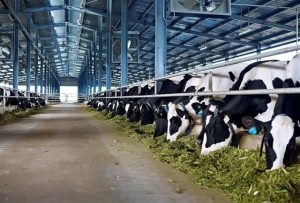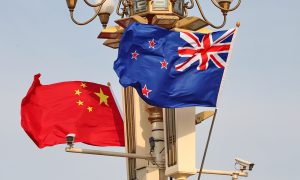
In June 2021, China received 32 percent of New Zealand’s total exports, including 44 percent of New Zealand’s dairy, 90 percent of logs, and 41 percent of meat, pushing the value of all New Zealand goods exports in the month rose 17 percent year-on-year, Stats NZ said.
While New Zealand economy is a clear case study for benefits of trade with China, its close neighbor’s trade tensions with China continue to escalate.
Australian trade with China for almost all industries has plummeted 40 percent amid tensions, Australia’s ABC news reported in March. Thermal coal exports to China were down 70 percent in the six months to January 2021, while metallurgical coal had dropped 60 percent. Coal exports dropped 83 percent when comparing the figures from the December quarter of 2019 to the December quarter of 2020, according to ABC news.
Both members of the “Five Eyes,” Australia’s trade ties with China show a different trend with New Zealand’s; here are the major reasons:
Firstly, Australia and New Zealand have different understanding in their position in international community. Being a smaller country than Australia, New Zealand isn’t seeking to become a hegemonic state in the South-Pacific region or the second hegemonic state under the US hegemony system in the Asian-Pacific region.
Second, Australia and New Zealand have different strategic priorities and national interests. New Zealand attaches greater importance to economic interests rather than regional hegemony. After all, economic interests are related to the national economy, people’s livelihood, and political stability.
Third, Australia and New Zealand hold different attitudes toward their competition with the US in international trade. Exports from New Zealand, the US, Australia, and Canada maintain high degree of homogeneity, especially when it comes to agricultural and livestock products. The US has relatively large agricultural subsidies, but both Australia and Canada appears to remain silent. New Zealand attaches greater importance to the existing markets, and is unwilling to sacrifice its own interests due to the hegemony of the US, and it cannot afford to sacrifice either.
It’s no secret that Australia’s allies have gladly absorbed market share in China that Australia lost due to mismanagement of the bilateral relationship with its most important trade partner. Australia and New Zealand have fierce competition within the Chinese market in many areas. New Zealand’s exports of agricultural products, livestock products, and seafood to China have all increased significantly.
Australia, on the other hand, still relies on rising international iron ore prices, and has continued to allow China-Australia relations to deteriorate. Australia even tries to persuade New Zealand to work with Australia to contain China and jointly safeguard the hegemony of the US in the Asia-Pacific region. Perhaps it is time for Australia to reflect on its China policy: should it continue to sacrifice its own interests to safeguard the US hegemonic strategy?
The author is a chief research fellow at the Research Center for Pacific Island Countries, Liaocheng University, and a research fellow at the Australian Studies Center at Beijing Foreign Studies University. bizopinion@globaltimes.com.cn

























